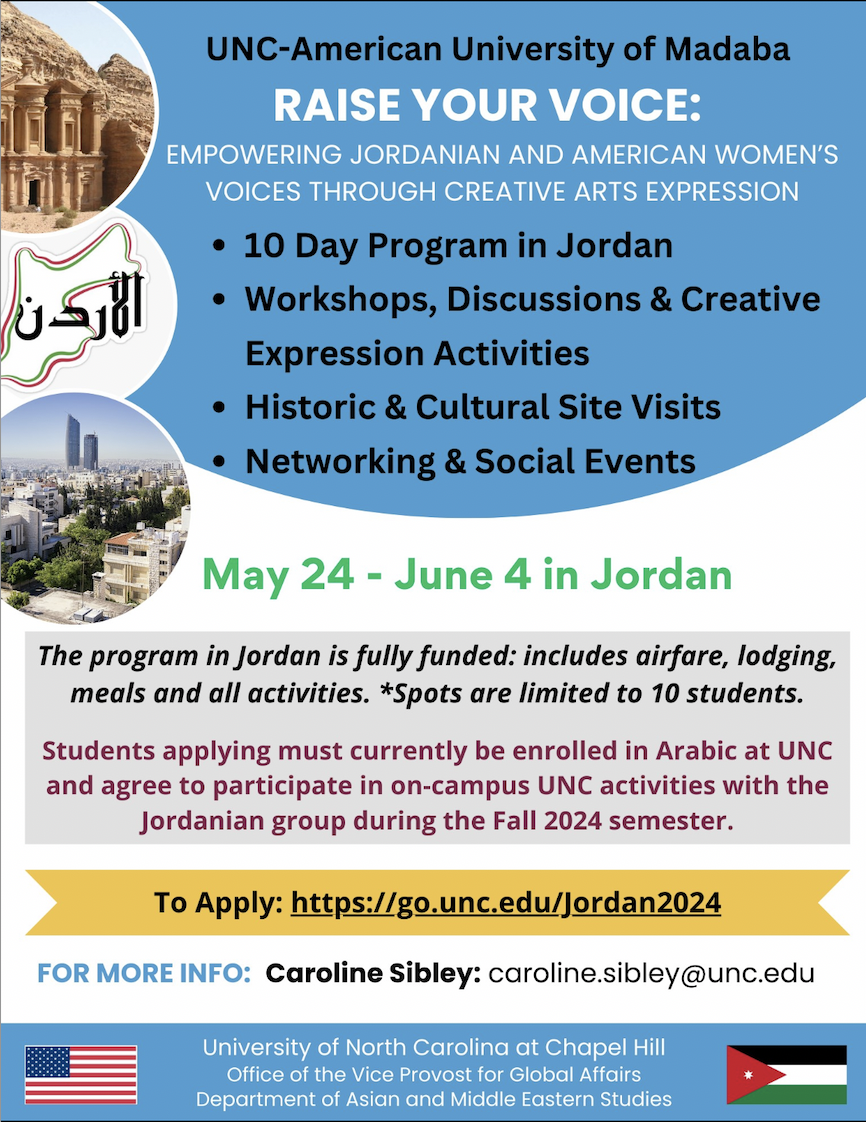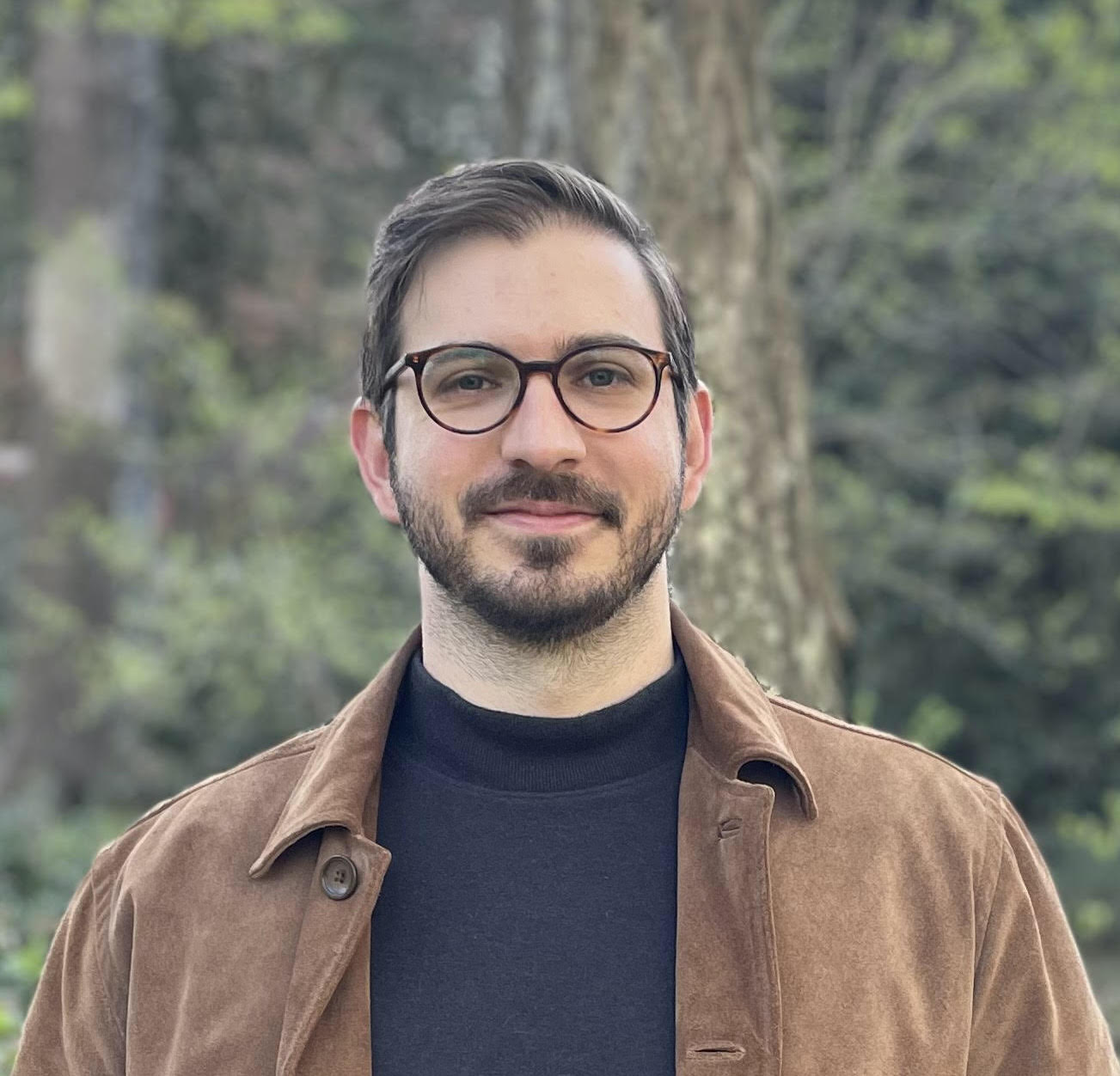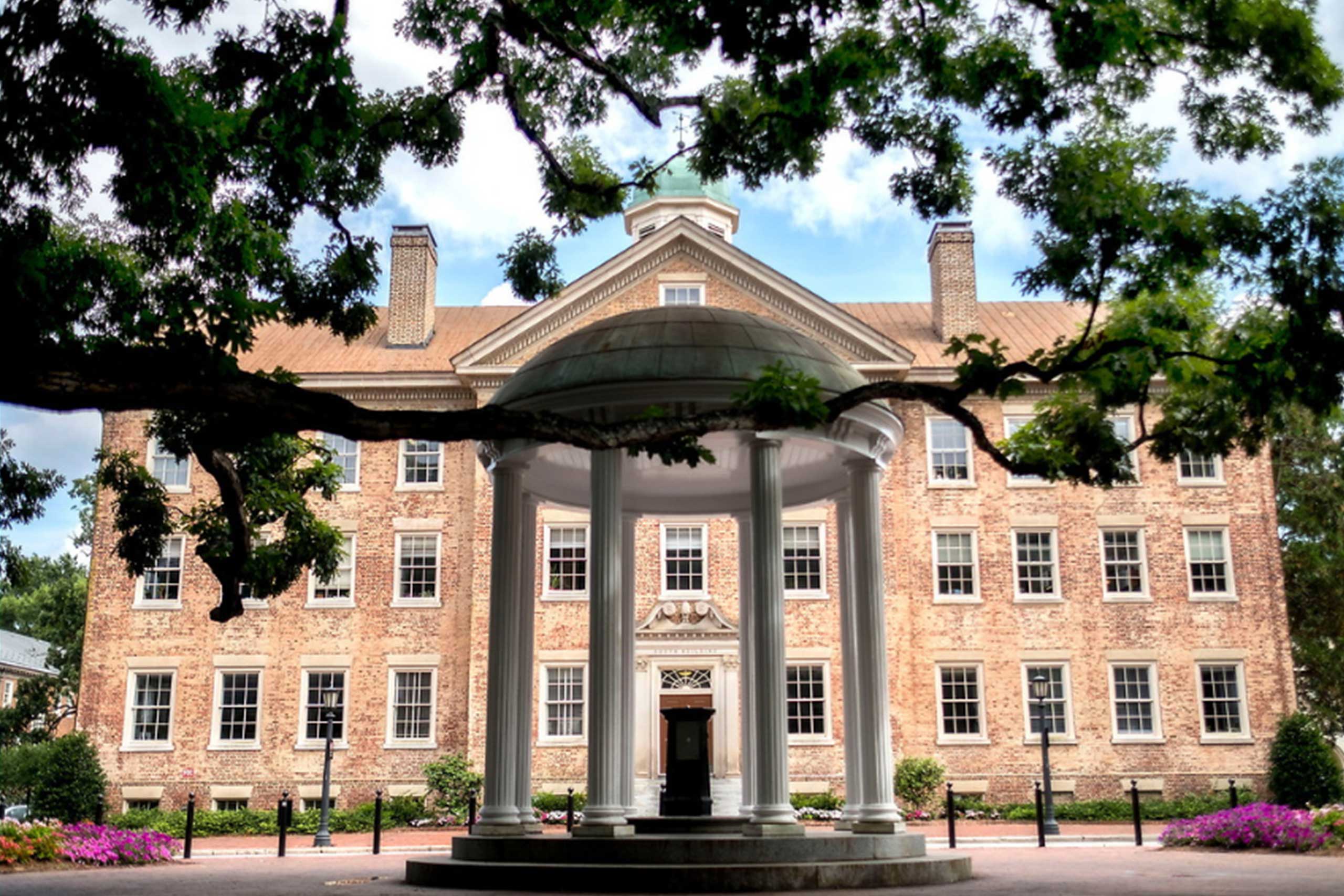
While UNC and Duke are rivals on the basketball court, the two schools’ faculty, staff and students often join forces to take on pressing global, national and local issues and challenges.
Winter’s coming, and the Duke-UNC rivalry is heating up. The schools’ football teams battled Thursday night in a nationally televised game. Their men’s basketball teams are both ranked in the Top 10, and their women’s teams are in the Top 15, promising fans plenty of reasons to trade insults this season.
Well away from the spotlight, however, the two universities collaborate far more often than they compete. Over the next several years, they’ll extend an important initiative they began decades ago: enhancing our state’s and nation’s understanding of one of the world’s least understood regions – the Middle East.
The Duke-UNC Consortium for Middle East Studies recently won a four-year, $2.4 million grant from the U.S. Department of Education, cementing its status as the Southeast’s premier center for studying a region that is constantly in the headlines.
The consortium, which was formalized in 2008, brings together the Carolina Center for the Study of the Middle East and Muslim Civilizations and the Duke University Middle East Studies Center. The two institutions will use the grant to fund joint courses, workshops, outreach to K-12 schools, academic fellowships and projects with national media, business and government officials. The initiative builds on an informal partnership on Middle East studies that the universities began in the late 1950s.
“We need to raise the level of conversation about this region,” says Carl Ernst, co-director of UNC’s Carolina Center. “We want to get information based on real expertise into the conversation and make it available in a very comprehensive way.”






